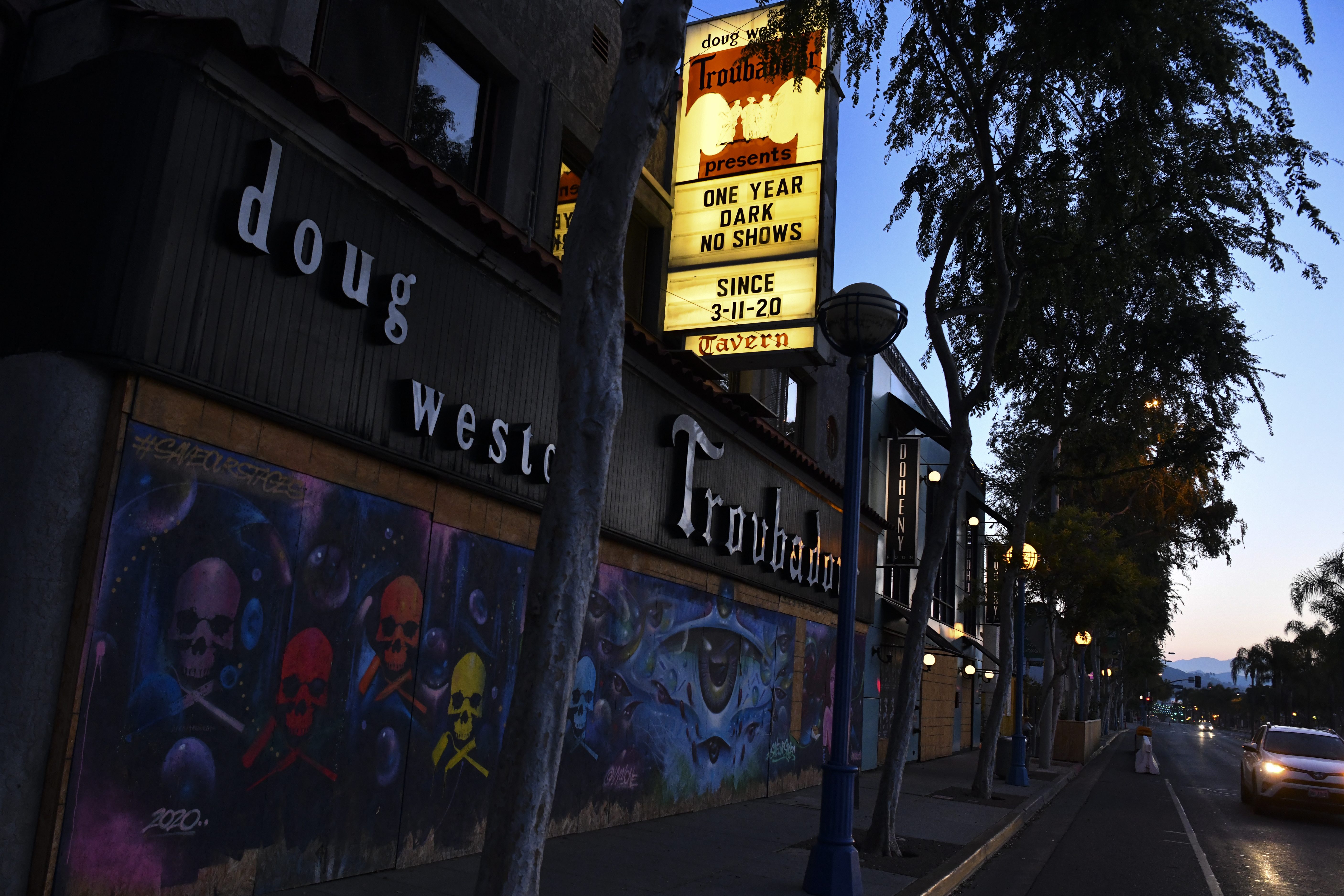When Japanese Breakfast’s Michelle Zauner made the tough choice to postpone her third album Jubilee — originally slated for a 2020 release and out today via Dead Oceans — to this summer due to the COVID-19 pandemic, she had no idea how perfect her timing would be. With restrictions slowly being lifted and people reemerging and reuniting after over a year of isolation, what better time to put out a record about finding joy in the wake of unbearable grief?
“I had no idea what was going on, if this was going to be one month or two months or a year,” Zauner tells InsideHook. “And so it still was just so much unknown back then, and it just was like, ‘I have no idea what’s going on, but it doesn’t seem like anyone wants to listen to a record about joy right now.’ Now it does feel like it’s such a perfect time for it to come out, and I’m just so happy that we waited.”
Jubilee comes on the heels of her critically acclaimed memoir Crying in H Mart, an expansion of her 2018 New Yorker essay of the same name, about the devastating loss of her mother in 2014 after a bout with cancer and her relationship to her Korean-American identity. Zauner began working on the record in 2019 after submitting her first draft of the book — which debuted at number two on the New York Times Best Seller list back in April — to her editor, and getting back to music after exploring a different medium felt like a breath of fresh air.
“It was such an insular and lonely process and such an unfamiliar process for me working on the book that going into the record, I was so excited to return to this medium that I felt I knew pretty well and just was much more collaborative,” she says.
That collaborative spirit led to her most sonically daring record yet, an exuberant collection of lush synths, saxophones and strings that signals a departure from 2016’s lo-fi Psychopomp and 2017’s Soft Sounds From Another Planet.
“I felt like I was kind of ready to try to think about larger arrangements and composing with those in mind for the first time,” Zauner explains. “And also I had just written two albums about grief and loss and a whole book about it that I felt like, lyrically, I was really ready to dive into a new theme. And the most unexpected, surprising theme was at the opposite end of the spectrum of human experience and talking about joy. And I felt like to explore a theme like that you needed to make something sonically very expansive and bombastic and incorporate these types of instruments.”
She kicks it all off with the sustained synth tone and marching-band drums of opening track “Paprika,” which she describes as a “perfect thesis statement for the album.” On it, she revels in the euphoria of “projecting your visions to strangers who feel it, who listen, who linger on every word” while also admitting, “I opened the floodgates and found no water, no current, no river, no rush.”
“I wrote it when I was getting back in the saddle of writing music, and there’s always this kind of nerve-wracking feeling when you haven’t written a song in a while, just like, ‘Did I lose it? Do I know how to do this anymore?’” she says. “And I think there’s always this pressure as you get to be a bigger artist that people are looking for something from you, and what if you don’t have it to give? And I think that for so much of my career I’ve just been running away from this trap door that I’m kind of convinced is going to take everything away from me, that sometimes I forget to just kind of revel in what I have and what I’ve built, and this fan base that is so generous and loving. I’m just so afraid of letting them down sometimes that I’m just — my eyes are sort of to the ground trying to be the best that I can be that I forget to just really enjoy it sometimes. So I feel like that song, in a lot of ways, is two parts of your head talking to each other, one that’s so wrapped up in the anguish of art-making and one that’s kind of reminding you to breathe and let it in.”
That duality exists throughout Jubilee, and while it’s ultimately an upbeat record, there are moments of self-doubt or sadness peppered in. That’s most apparent on the gut-wrenching “In Hell,” on which Zauner draws parallels between the experiences of putting her dog to sleep and administering hydrocodone to her dying mother.
“That song was originally a Japanese bonus track on Soft Sounds From Another Planet.,” she says. “And it felt like too good of a song to live on as exclusively a Japanese bonus track.The lyrics are maybe the saddest lyrics I’ve ever written, and I think that it’s a great song. And obviously it’s not a joyful song, but we revamped it for this album. It felt like it sonically fit, and maybe feels all the more devastating on the record that’s very happy. Whereas if you had a sadder album throughout, maybe it would just kind of snuggle into the rest, I don’t know.”
“I think that so much of what joy is is finding it in the context of the harder parts of your life in some ways,” she continues. “And I think that song kind of serves as this reminder of one of my lowest moments and how joy is kind of still possible after enduring something like that. I think that’s sort of where it found its place. I’ve been really poorly quoting this Nick Cave quote about grief, where he talks about losing his son and how grief is a pact that you make when you love someone, that when they’re gone, you’re going to miss them and the grief that you feel is going to be all-consuming. And I feel like in a way, having these relationships that are so full of joy and then missing them and the devastation that comes after is also sort of a reminder of a certain type of happiness, I think.”
To effectively capture the bittersweet complexity of Jubilee‘s lyrics, Zauner also pushed herself to new instrumental heights, taking music theory classes in the years leading up to the record to beef up her skillset and closing it all out with a grand, cathartic three-minute guitar solo on “Posing For Cars.”
“I knew that I wanted to have this really sprawling, long guitar solo, and I had never really done something like that before,” she says. “I’ve written solos before, but they’re tighter and they don’t take up that much space. It’s basically like you’re creating a narrative, it has a build and an apex and a denouement in order to feel good, hopefully. And I love Wilco’s guitar solos, and I was particularly inspired by the song called ‘At Least That’s What You Said,’ where it starts as this kind of understated ballad on the guitar and it’s a song that’s about two people who can’t say what they really want to, to one another. And Jeff Tweedy rips this incredible solo at the end of it that I feel like says everything that can’t be said in that sort of moment. And similarly ‘Posing For Cars,’ in my mind, is a song about two people who love each other in very different ways and realizing that both are very vigorous and valid.”
It’s an important reminder that we’re all moving through the world differently and that human beings are remarkably complex. To reduce a record — be it Jubilee or anything else — to any given narrative, especially when it’s one rooted in personal tragedy, can often be dismissive of the unique ways in which we all engage with art.
“I think that’s one thing that’s really wonderful about being a musician, and I’m learning so much from putting writing out there in the world, is that there’s so much different baggage you can bring in to a record and you can take what you want,” Zauner says. “And sometimes it’s annoying and weird because people will write about your record and you’re like, ‘That’s not what that song is about. How can you so confidently believe that’s what the song is about?’ But for them that’s what they want the song to be about or need the song to be about.”
Ultimately, she says, it’s just about creating that sacred connection between artist and listener — especially as we’re all coming off of the loneliest year of our lives. “I want people to feel deeply, and I want them to feel moved in any which way really,” she says. “And I hope some people feel joy, and I hope some people feel release. And I just hope it’s a great feeling of relief for everyone. I feel like everyone needs to feel emotional movement after a long time of confusion and terror.”
This article appeared in an InsideHook newsletter. Sign up for free to get more on travel, wellness, style, drinking, and culture.
























